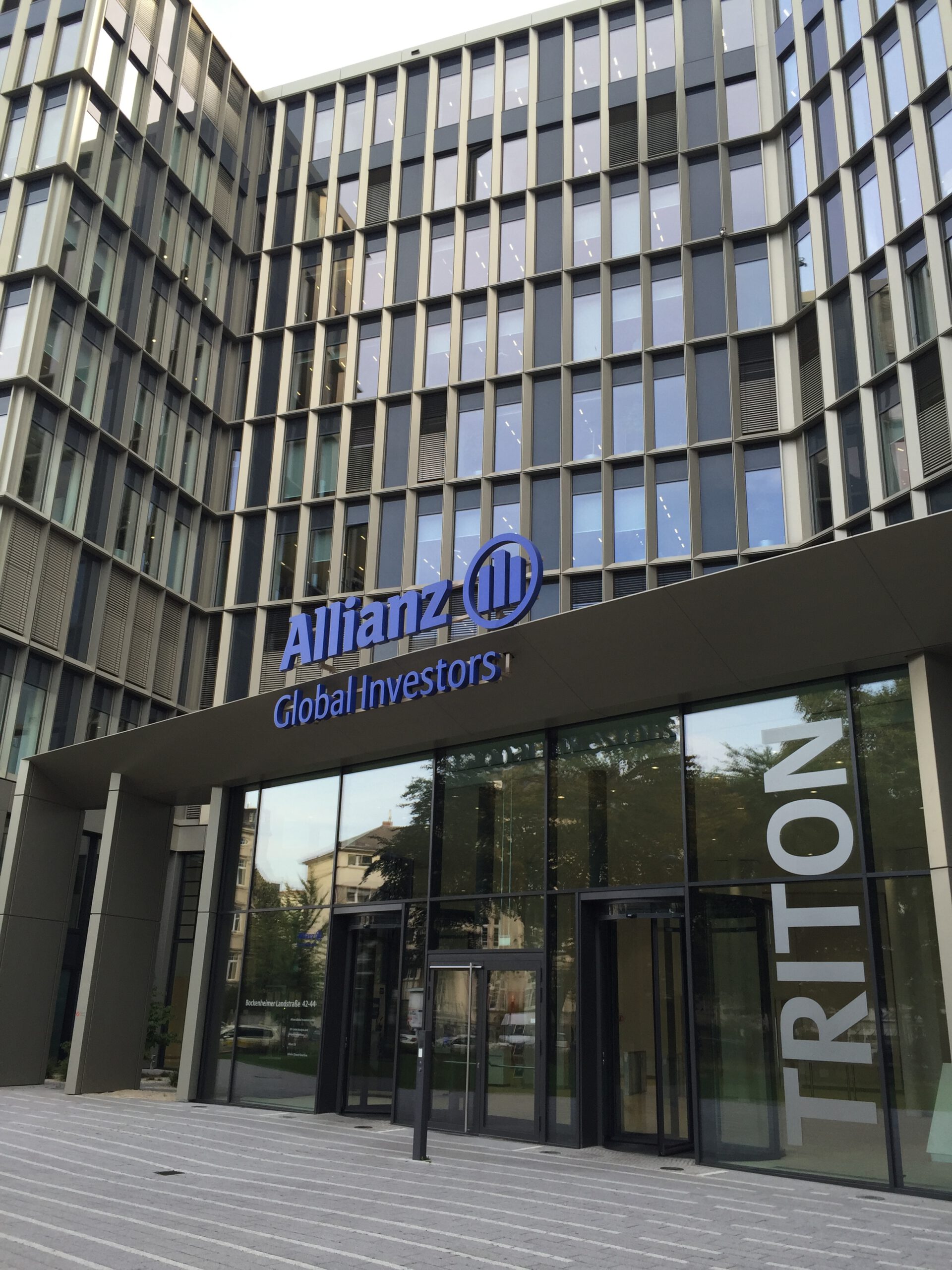Drivers
Never waste a good crisis
 Main office of a major insurance company offering “agri-investments”. Source: Ouma 2014.
Main office of a major insurance company offering “agri-investments”. Source: Ouma 2014.
Since the global financial crisis 2007/08, the world has seen a stark rise in financial investment in farming and agricultural production. Indeed, finance has been identified as one of the main causes of the so-called “global land rush”. As an effect of the crisis, which quickly morphed into a sovereign debt crisis across Europe, fixed income (e. g., from government bonds) for large institutional investors, such as pension funds, was at risk. Pension funds saw their asset values drop by over US$5 trillion during the global financial crisis [1].
Since we all need to eat, and the resources of the planet are limited, farmland and agriculture seemed like a solid investment case. Asset managers and investment consultants contributed to the emerging hype around farmlands, heralding it as the “oldest asset class in the world”. Institutional investors were soon joined by other players with similar concerns, such as wealthy individuals, insurance companies, endowment managers, and sovereign wealth funds. In a world with a growing population that needs to be fed, the financial returns from agriculture are sold as safe bets. Between 2005 and mid-2018, the number of investment funds specializing in food and agriculture assets skyrocketed from 38 to 523, with assets under management (AuM) surpassing US$83 billion, excluding timber [2].
The debate that this has prompted has been frequently alarmist, with financiers blamed for rising land prices, corporate enclosures, the dispossession of smallholder farmers, and the expansion of large-scale industrial agriculture. Via an ethnographic journey through the agri-focused asset management industry, this website speaks to these concerns. Linking macro-dynamics to specific case studies allows us to put global finance “in place”, bringing into view the flesh-and-blood institutions, globe-spanning social relations, everyday practices, and place-based value struggles that are often absent in broad-brushed narratives on the “financialization of agriculture”.
[1] Keeley B and Love P (2010) Pensions and the Crisis. In From Crisis to Recovery: The Causes, Course and Consequences of the Great Recession, Keeley B and Love P (eds.): 68-87. Paris: OECD. [2] Valoral Advisors (2018) Breakdown of investment funds included in Valoral Advisors’ database (by investment target, region and fund’s status: proprietary data bank). Luxembourg City: Valoral Advisors.